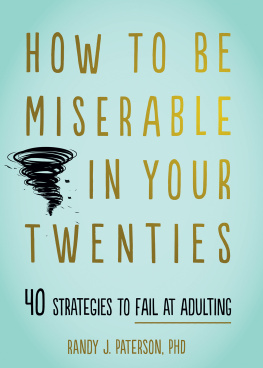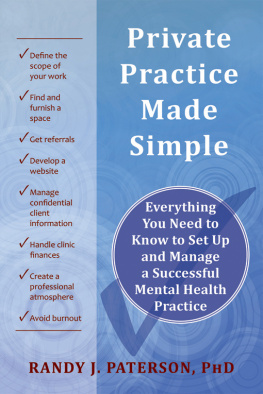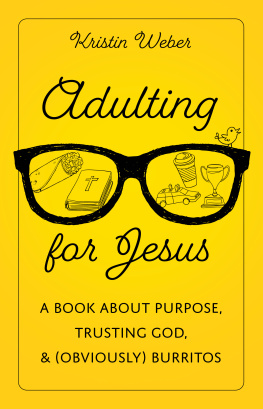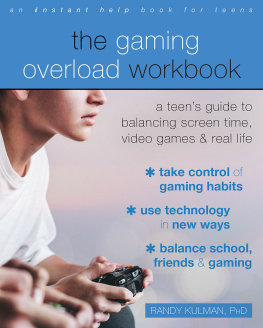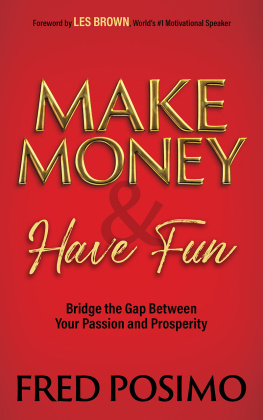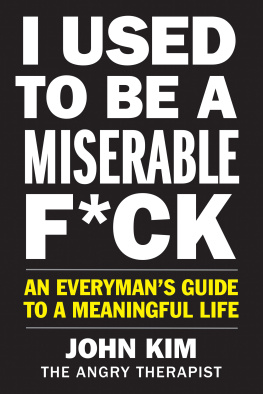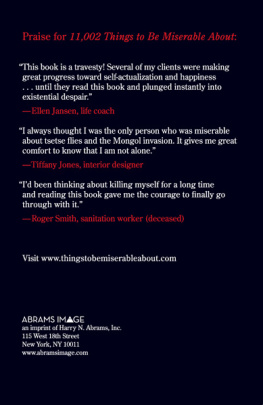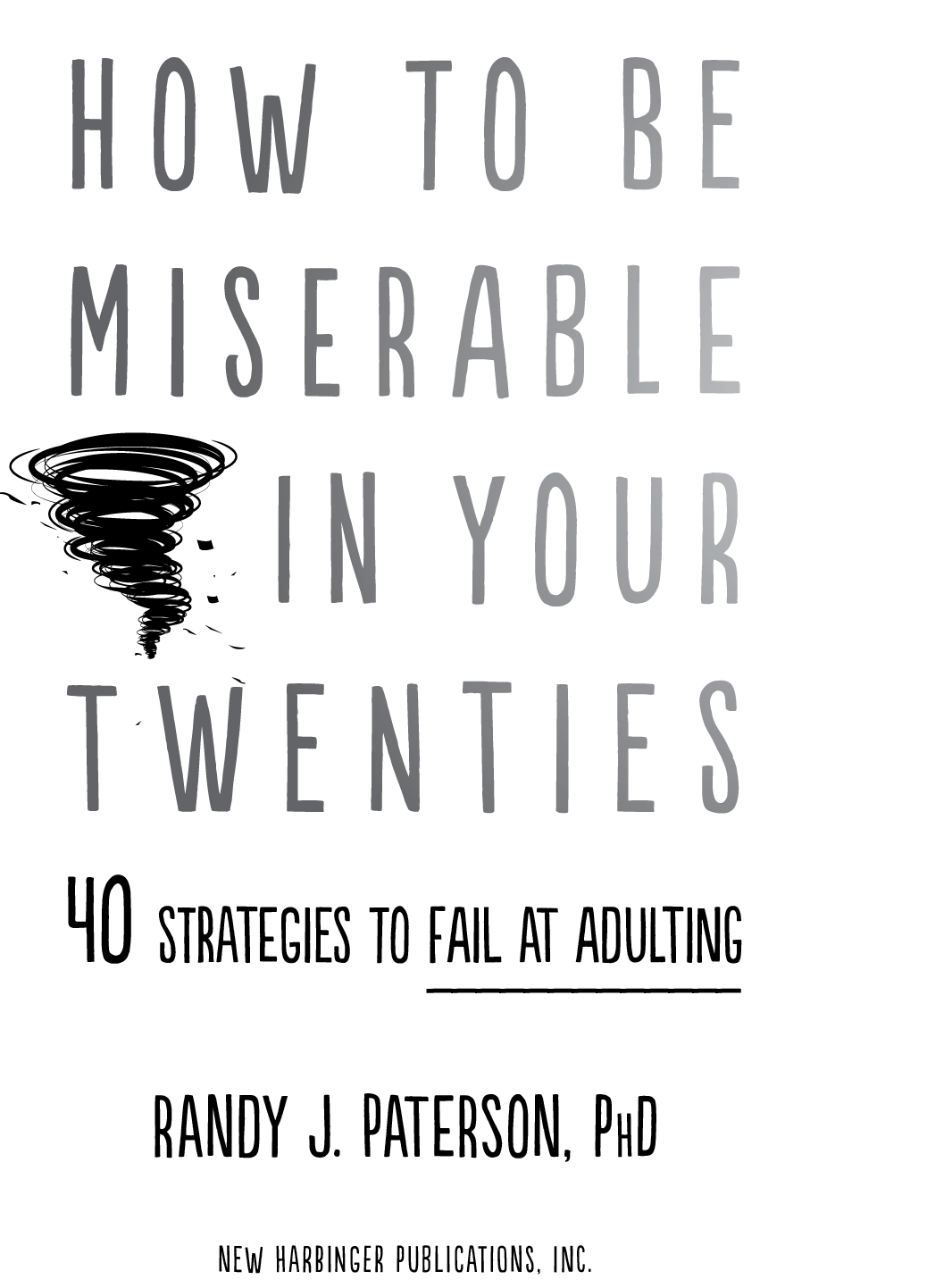When you find yourself underlining so many passages that the whole book is basically one long underlineits time to recommend that book. Highly. And be grateful it exists.
Lenore Skenazy , president of Let Grow, and founder of Free-Range Kids
Pathological social withdrawal (called hikikomori in Japan) is now increasingly considered a global mental health and socioeconomic concern. Withdrawal behaviors tend to be regarded as negative and maladaptive. Is this perception always correct? Randy Patersons book challenges such preconceptions and prejudices regarding hikikomori-related behaviors while also suggesting multidirectional solutions to this phenomenon.
Takahiro A. Kato, MD, PhD , associate professor in the department of neuropsychiatry, and chair of the hikikomori research clinic at Kyushu University Hospital in Fukuoka, Japan
Innovative and inspiring. The provocative mood makes the reading easy; the structure in lessons makes the book an on-demand pool of instructions the reader can refer to whenever needed. Randy Paterson has made great work to collect life situations and convert them into such practical actions.
Ivan Ferrero, PsyD , cyberpsychologist, speaker, trainer, educator, edge innovator, and futurologist
Randy Paterson has done it again! In his latest book, How to Be Miserable in Your Twenties , Paterson provides insight into how young adults can avoid common traps that can contribute to unhappiness. It includes a range of well-tested, commonsense strategies that are especially relevant for those transitioning into adulthood and independence. This engaging and humorous book is a must-read for young adults (even those who are not in their twenties) who want to prevent the thoughts, behaviors, and habits that can lead to feeling overwhelmed, depressed, or anxious. I highly recommend it!
Martin M. Antony, PhD, ABPP , professor in the department of psychology at Ryerson University in Toronto, ON, Canada; and coauthor of The Shyness and Social Anxiety Workbook and The Anti-Anxiety Workbook
How to Be Miserable in Your Twenties reads with a tender irreverence. Patersons voice is heart-catching, imaginative, and wise as he invites emerging adults to abandon many of their self-defeating delusions which they have caught from their culture like a virus. Paterson gifts the reader with fresh agility to better dance with the paradoxical vicissitudes of life. You will find his creative re-rendering of the path to misery accessible, charming, and a helpful tool for reorienting you to a wise life.
Scott Spradlin, LPC, LMAC , dialectical behavior therapy (DBT) therapist and trainer in Wichita, KS; and author of Dont Let Your Emotions Run Your Life
Publishers Note
This publication is designed to provide accurate and authoritative information in regard to the subject matter covered. It is sold with the understanding that the publisher is not engaged in rendering psychological, financial, legal, or other professional services. If expert assistance or counseling is needed, the services of a competent professional should be sought.
Distributed in Canada by Raincoast Books
Copyright 2020 by Randy J. Paterson
New Harbinger Publications, Inc.
5674 Shattuck Avenue
Oakland, CA 94609
Cover design by Amy Shoup Acquired by Tesilya Hanauer Edited by Teja Watson
All Rights Reserved
Library of Congress Cataloging-in-Publication Data on file
For Geoff, who wasnt there that decade. Which is just as well.
Most of the harm done in the world is done by those who think they know what happiness is for other people and try to help them achieve it.
Quentin Crisp
I believe that maturity is not an outgrowing, but a growing up: that an adult is not a dead child, but a child who survived.
Ursula K. Le Guin
Its adult swim time and Im diving in here at the shallow end.
Suzanne Finnamore
Contents
Introduction:
The Great Leap Forward
Many who seem to be struggling with adversity are happy; many, amid great affluence, are utterly miserable.
Tacitus
Why misery? Why the twenties?
Well. Get in the car.
Drive the narrow highway north of Vancouver. Pass the smooth black lakethe one no one ever seems to swim in, perhaps fearing what lurks beneath the surface. Glance ahead, where the road slashes between rock faces and disappears, the mountains on the far side of Howe Sound a distant barrier.
Its a crest and curve. The road sweeps to the right, rejoins the coastline, and one of the largest granite domes on Earth comes into view: the Chief. Seven hundred meters. Mostly straight up.
Theres your climb.
No rush. Youve got seventy years. Or eighty. A hundred if youre lucky.
Divide it up any way you like. Psychologist Erik Erikson described it in eight stages, from infancy to old age.
There are challenges relevant to the whole effort. Are you dressed right? Pacing yourself? Properly equipped?
A while back I published How to Be Miserable: 40 Strategies You Already Use, a guidebook to the hazards along lifes trajectory. There are many more than forty ways to sabotage our contentment, of course, so I made my choices for their wide applicabilitytheir effectiveness at producing disaster at any age.
There are also challenges specific to each stage, however. That rock over there to your left? Dont stand there: its loose. That steel ring? Ignore itmy buddy put it in; hes an idiot. That shelf? Solid; you can trust it.
Perhaps no phase offers more traps than the crumbling overhang known as the twentiesespecially now, as our century negotiates its own dysfunctional early adulthood. Faltering economies, crumbling certainties, light-speed technological change, ever-morphing professions. Many of the holds here dont hold, the guidebooks are upsidedown, the cracks are chasms, and the arrows were drawn by jokers, optimists, inspirational speakers, and pharmaceutical representatives sniffing for profit. Youre supposed to
- Choose between remaining with family or striking out (and maybe, yes, actually striking out) on your own.
- Find a career path on a shifting economic iceberg that submerges entire fields every few years.
- Figure out which of those shiny, self-affirming slogans about adult life are valid and which are happy-sounding codswallop.
- Renovate your own personality to fit independent life, despite having spent most of your upbringing in human obedience training.
- Know, as the song says, when to hold em and when to fold em, walking the tightrope between sensible caution and necessary risk.
What are the odds of nailing all this and more? Just about nil. Time, then, for a consideration of the landmines awaiting us at the dawn of our newfound maturity.
But first, a touch of background.
In the beginning
In my first few years after graduation I avoided filling my practice with people suffering from depression. Id veered uncomfortably close to it myself during my training years. Then fate, with its usual backhanded sense of humor, handed me the leadership of a depression treatment program for people who had recently been discharged from inpatient care.
We ran groups in the cheerless basement of the hospital. The idea was to train people in the basics of cognitive behavior therapy (CBT) and coach them to apply the principles in their own lives. Realizing that most of the clients had already been through multiple failed treatments, I chose not to waltz in with pom-poms flailing, shouting cheers of praise about the wonders of exercise and social contact. They would have shot me down in an instant.

